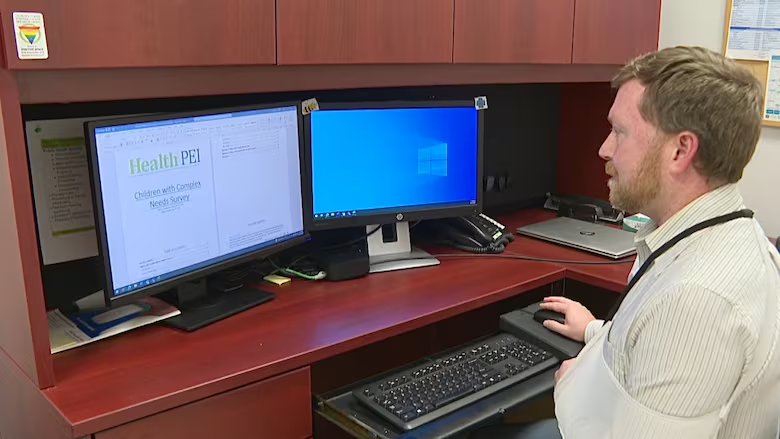More supports needed for people caring for kids with complex needs, Health P.E.I. survey suggests
84% of children with complex needs had difficulties accessing health services

A new Health P.E.I. survey sheds some light on some of the challenges children with complex needs face when trying to navigate the health-care system.
About 84 per cent of children with complex needs have had difficulties accessing health services over the past year, the survey suggested.
- Get the news you need without restrictions. Download our free CBC News App.
Complex needs are defined as having more than one physical, emotional, behavioural or developmental issue while requiring additional supports like therapy or specialized medical care. That includes conditions like cerebral palsy, asthma or autism.
Almost one in five P.E.I. children have complex needs, the survey results suggest.
Colin Hood, the children with complex needs co-ordinator for Health P.E.I., said that what the survey organizers heard was "not acceptable."
There can't be an abyss anymore. We really need to help our families to see that they're supported.- Colin Hood, Health P.E.I.
"If they're not receiving all the care that they really require, their development can be impacted," Hood said.
"Then we end up, unfortunately, with adults who are not able to perhaps really be part of society as they would have perhaps been able to with the right care."
The survey was done online and available to those who care for children and youth with complex needs. A total of 1,860 people completed the survey.
Province creating new patient navigator role
The survey also suggests 97 per cent of caregivers want services to help them navigate the system.
Hood said families have told him in the past they felt like they were "in the dark" or that they had to figure out the system on their own.
"Then there are those periods where they fall into the abyss," he said. "There can't be an abyss anymore. We really need to help our families to see that they're supported."

The province is creating a patient navigator position in response to the survey, Hood said. The navigator will directly assist families and caregivers in finding the help they need.
'It was pretty, pretty clear that this was a desire," Hood said.
"The big question is how to move forward with it, what are the specific duties that this person will do. It could be telephone meetings of looking at what services aren't being delivered, what's actually available, and then right to the point of in-person meetings."
Long waits frustrating, mother says
Colleen Webster of Mount Herbert has two sons with complex needs: a seven-year-old with autism and a 14-year-old with a speech disorder.

She said long waits for services can be frustrating and that a navigator would be a big help for families.
Webster said she wishes one was in place years ago.
"It definitely would have been huge for myself to be able to call that person and say my child has autism, he's nonverbal, he's very low functioning. So where do I start?"
While the short-term impact of this position remains to be seen, Hood said he wants to prevent any long-term consequences resulting from families not having any sort of support.
"What I've heard from a lot of families is yes, they just make it through. But there comes a point where they can no longer do that," he said.
"Worst case scenario is that child now has to be in the system because the parents can no longer care for that child. And we never want to see that happen."
